Review: "Girls Can Code" on BBC3
Last week I blogged my rant of the first episode of BBC3's "Girls Can Code".
As a result, I was invited to film a short review for BBC1 Points of View. My review was under two minutes with clips. I couldn't cover all the points I wanted. Below are all the notes I prepared for filming.
Review notes for Girls Can Code
I was super excited to see a short series called "Girls Can Code" on BBC3 in the TV schedule.
I've worked in the computing industry for over 25 years and I wanted to see how the low percentage of women in technology would be addressed.
After a few minutes of watching the programme, I started to get annoyed.
Can Girls Code? If you'd watched this series, your answer would be a resounding no.
Let's turn it around.
Can boys bake cakes? Can boys sew?
I give you The Great British Bake-Off and The Great British Sewing Bee. In these series, the gender of the male contestants and this year's Sewing Bee male winner was never made an issue.
Why are there so few women in tech? It's not because they're not capable. Remember the bit in the first episode where young schoolgirls were teaching programming?
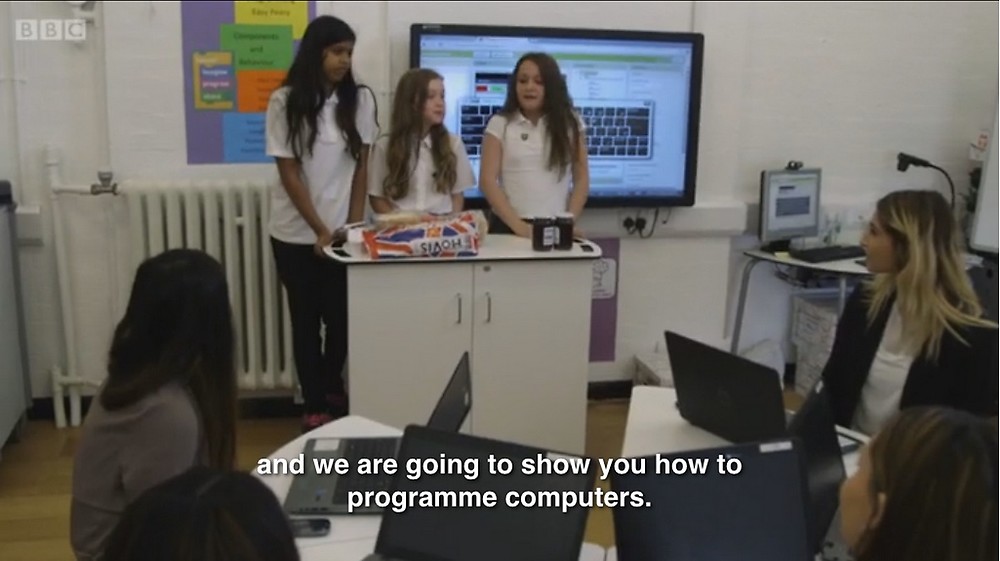
The real issue is: why aren't women APPLYING for jobs in technology?
"Girls Can Code" not only didn't address this question, it reinforced the negative stereotypes that discourage women from entering the digital industry.
What was great about "Girls Can Code"?
The title. If it'd actually been about girls coding.
What wasn't great was the way the five women were repeatedly undermined.
Firstly, by referring to young adults as "girls", they were infantilised, their status diminished.
Consider this clip from the second episode:
Narration:
Will they knuckle down to the challenge or will they turn their backs on the chance of a lifetime?"
Shot of Neelam who shrugs and says:
Right now, I just want to go home.
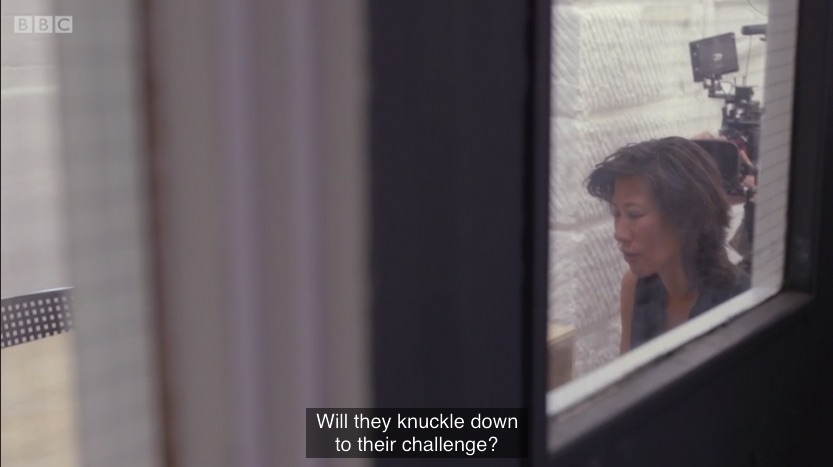
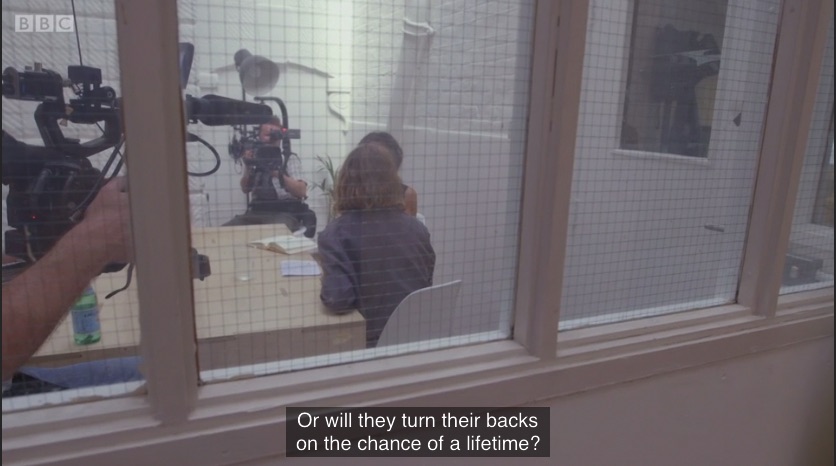
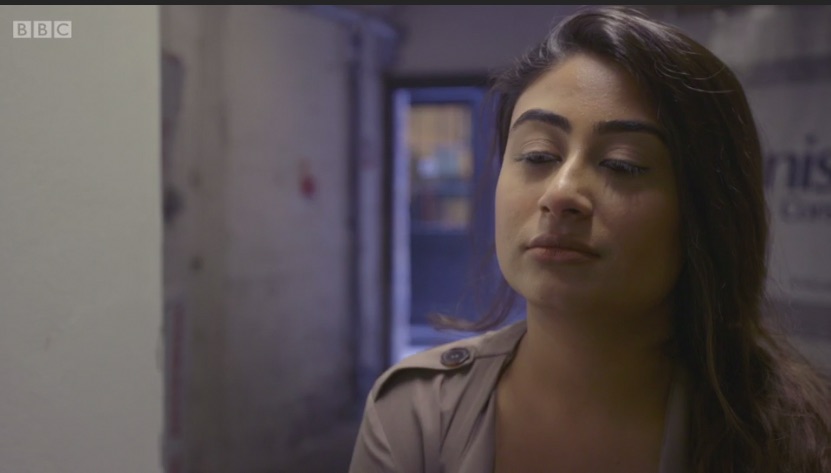
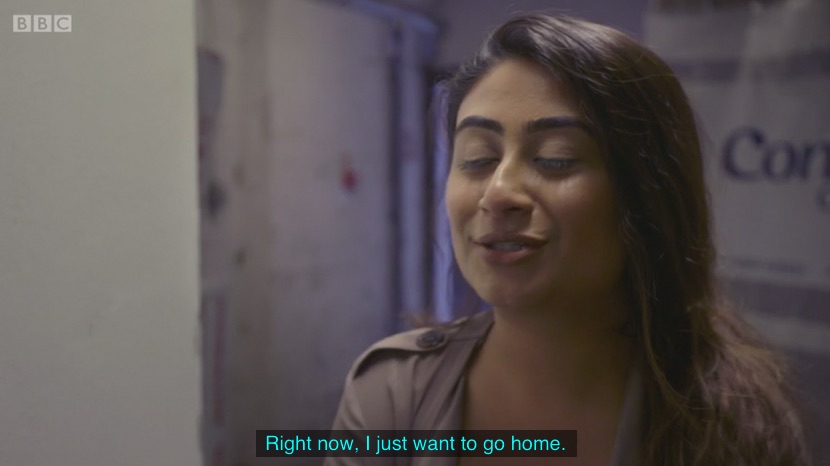
However, Neelam's defeatist statement was taken from the first episode in an entirely different context:
In fact, after being told by a potential investor that her idea was "not lucrative" and that "it wouldn't make any money"...
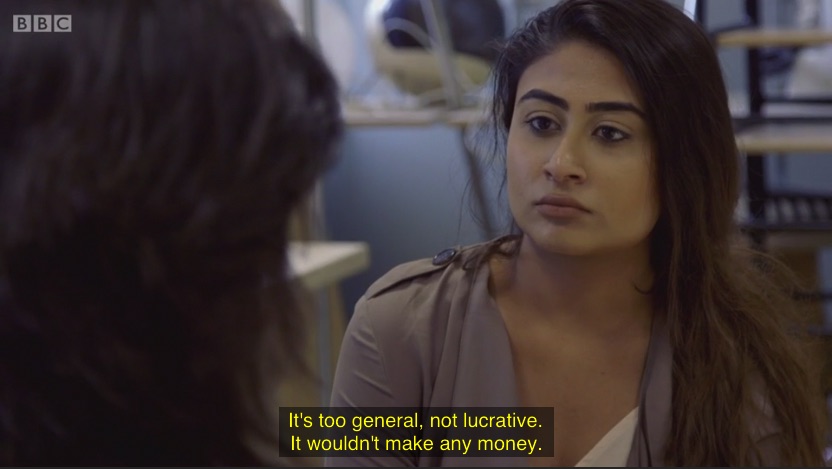
... Neelam does a piece to camera, obviously dejected.
Sorry, I don't know why I'm crying. I took it a bit personally. But I feel like I'm more determined and I'm just going to try harder.
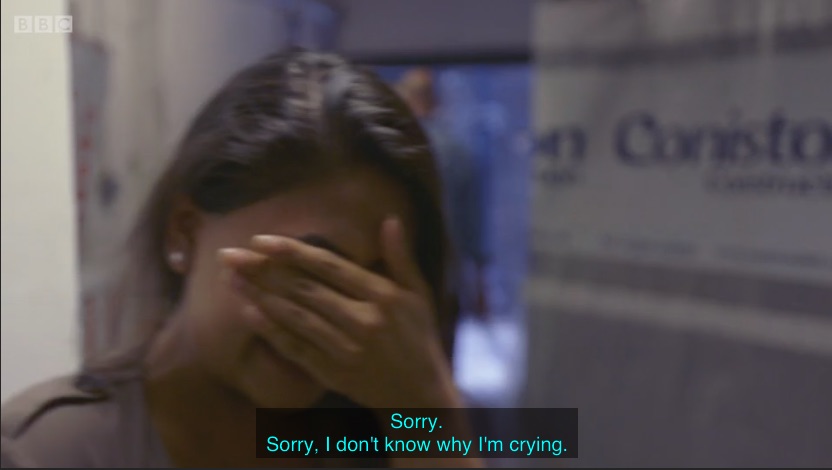
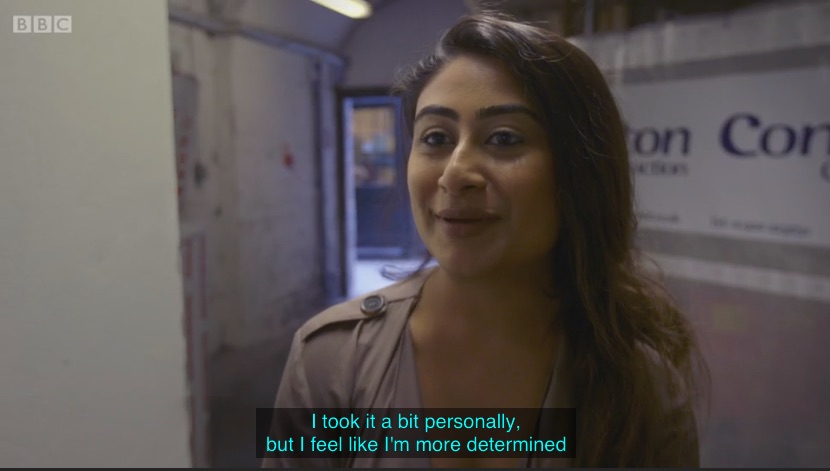
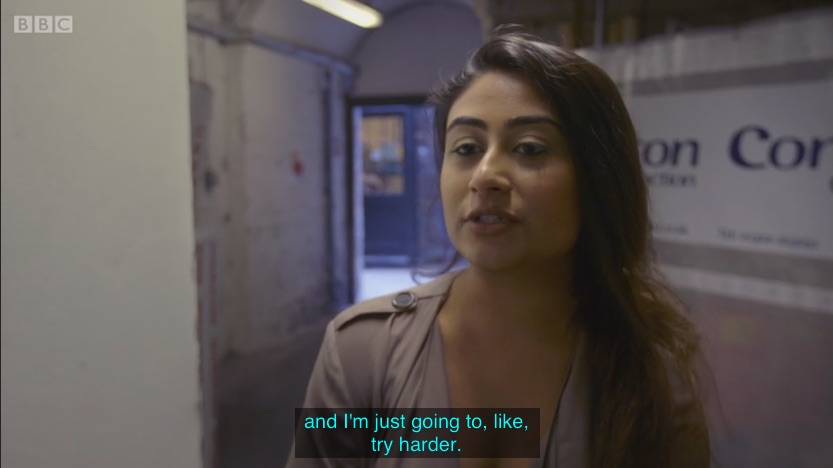
It's THEN that Neelam said "Right now, I just want to go home."

By taking Neelam's statement out of context, the OPPOSITE of what she actually said was conveyed, implying that she had no ambition.
Narration:
Apart from occasionally opening an app, they are pretty clueless
O RLY?
The narration in context:
What all the girls need is a basic knowledge about the world of tech, which is tricky, because when it comes to the mechanics of tech, the girls are somewhere between naive and know nothing. Apart from occasionally opening an app, they are pretty clueless.
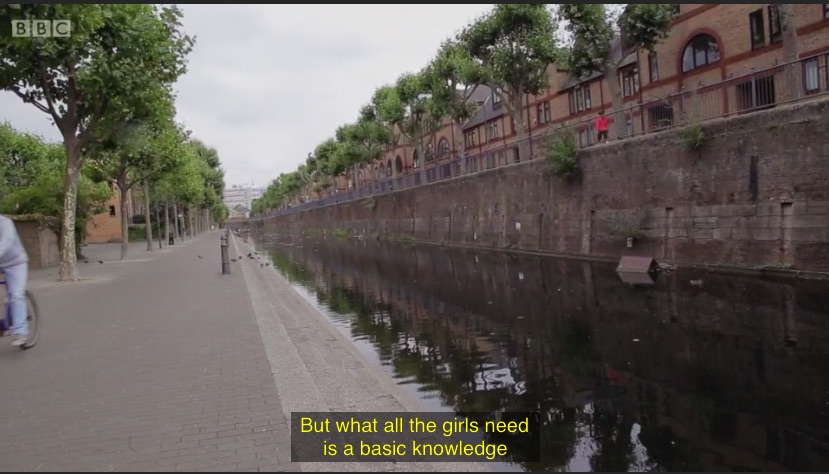
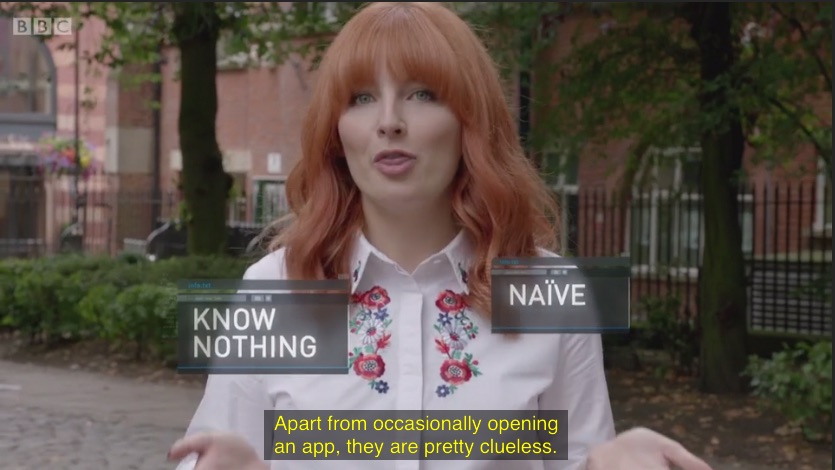
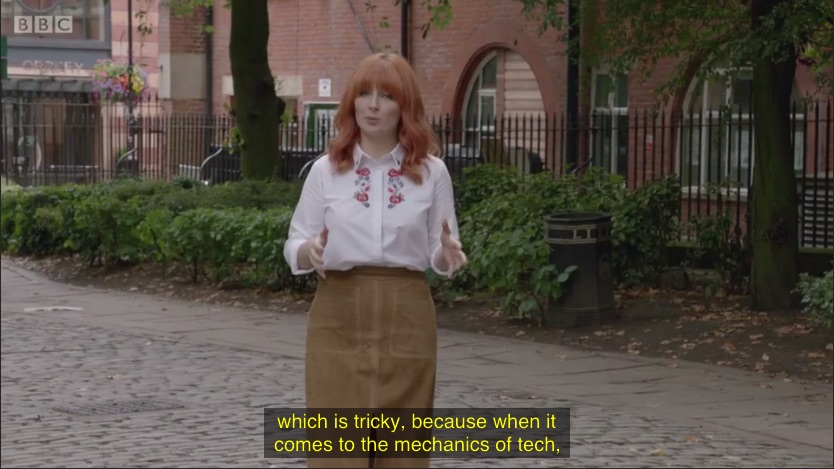
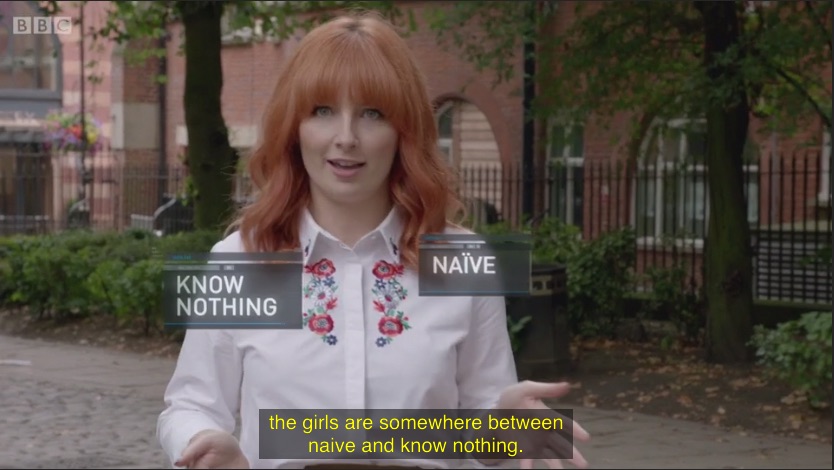
Erm, no! They are heavy users of Instagram and Snapchat.
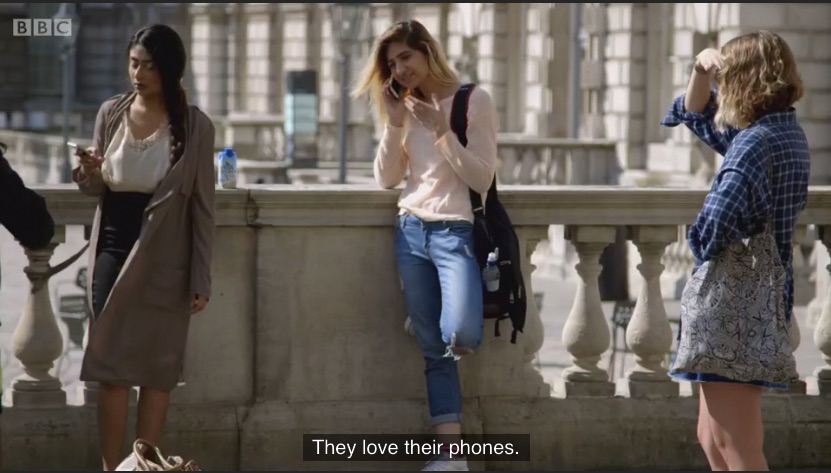
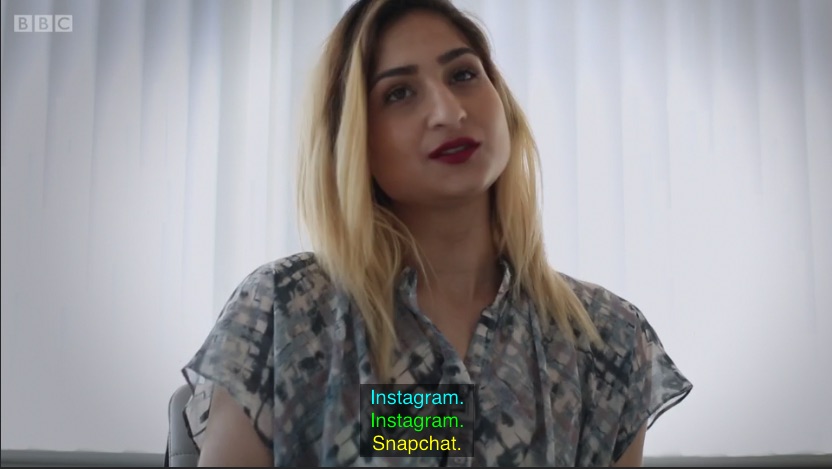
One is a gamer and another has a YouTube channel and a fashion blog.
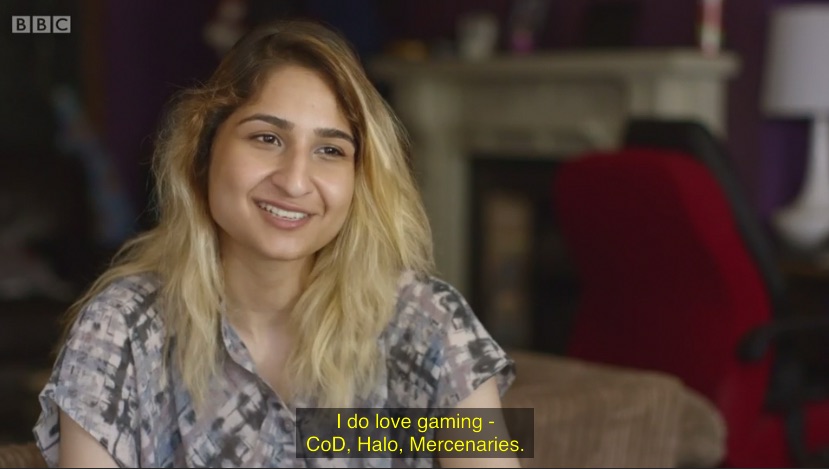
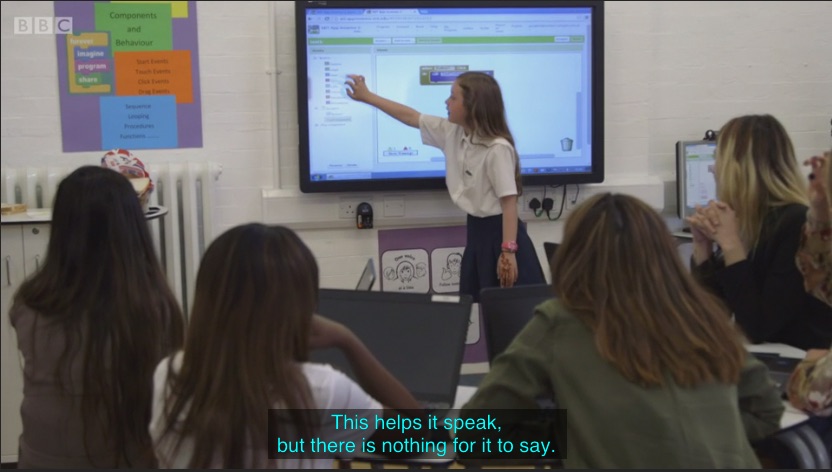
Look! Literally GIRLS who can CODE!
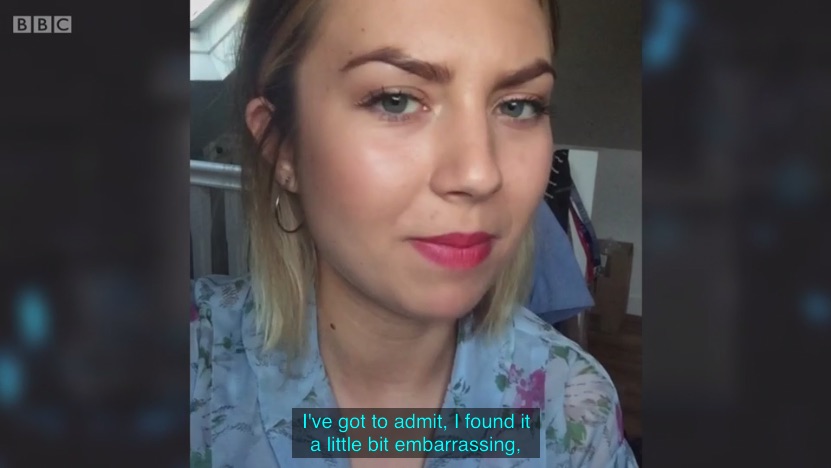
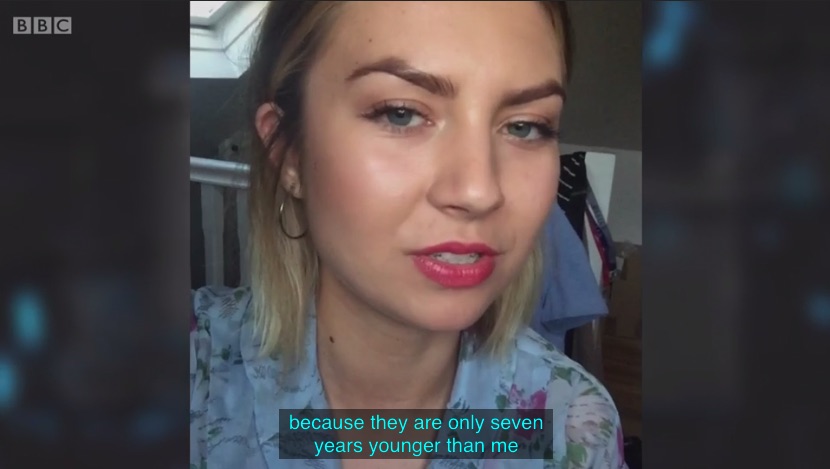
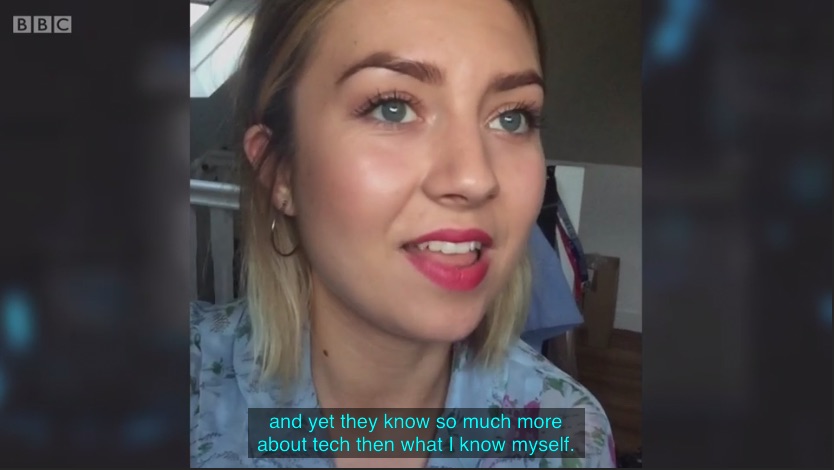
A programme setting out to show that GIRLS can CODE show a short segment of literally GIRLS who CAN CODE.
More of them next time, please?
Next, in the narration:
Next stop on our tour of opening the girls' minds is to show them the money.
Alex and I have come to meet a true inspiration. Eileen Burbidge, co-founder of Passion Capital, one of the newest and coolest investment companies in tech.
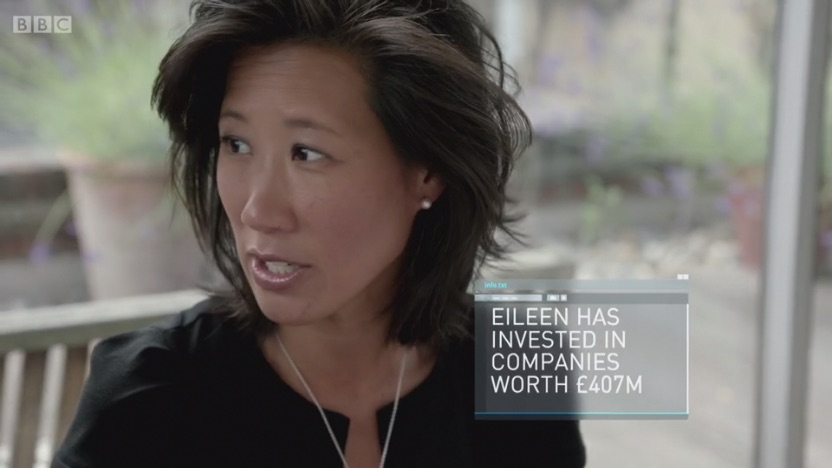
Narration:
Eileen is at the very heart of UK tech. In the summer, she was made the Government's tech envoy.
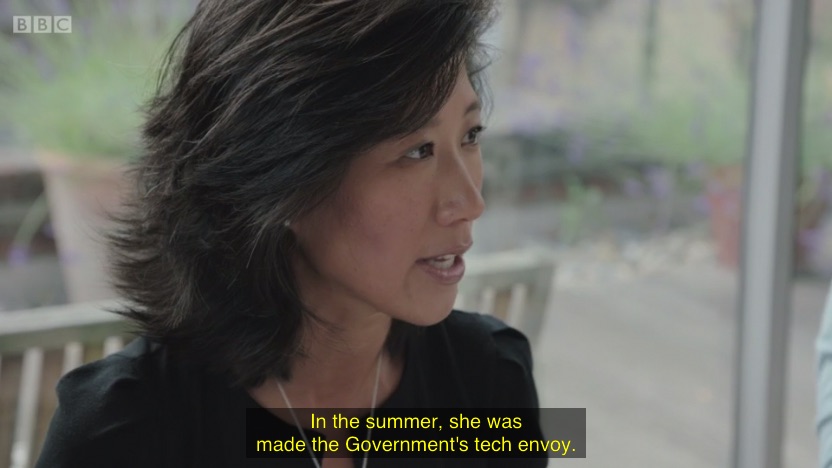
Narration:
No need to show off!
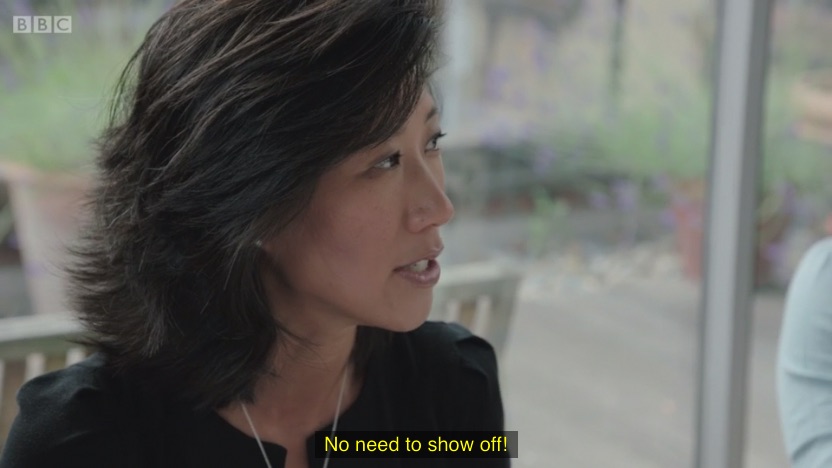
If you don't know what's wrong with saying "no need to show off!" just AFTER listing a woman's accomplishments in a male-dominated industry in a TV programme intended to encourage young women into the industry, then SOMETHING IS WRONG WITH YOU.
Narration:
[A]ll of the social media apps were started by men.
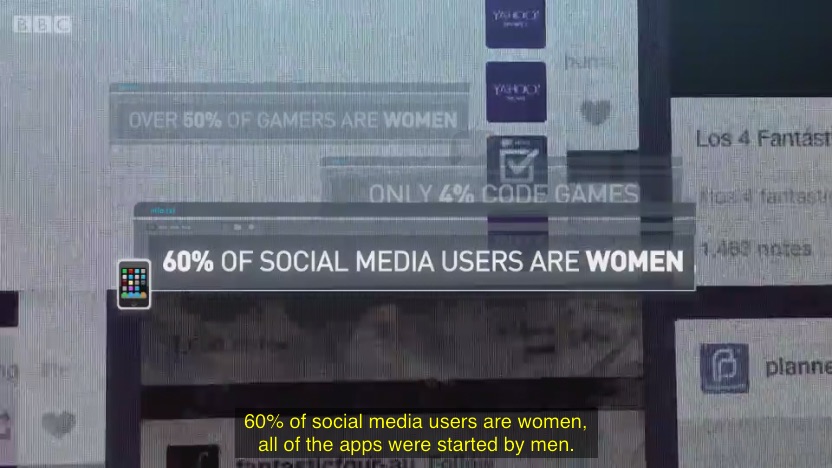
Bzzt. Wrong.
Not all social media apps were started by men.
Narration:
They might find they've gone from selfie queens to digital queens
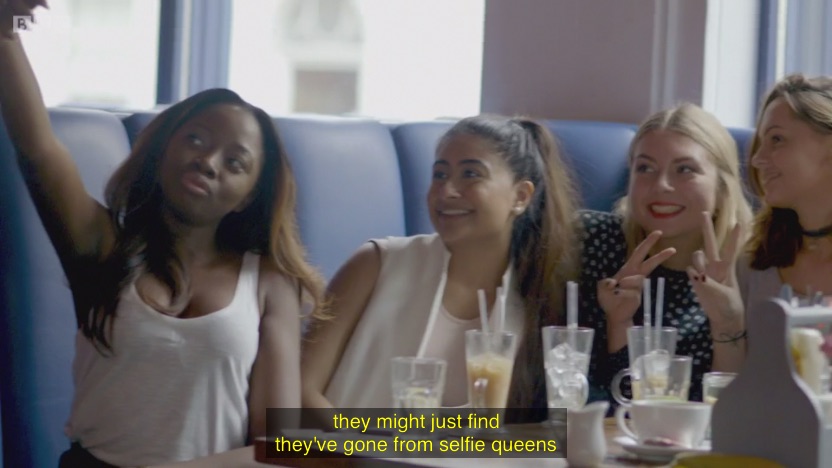
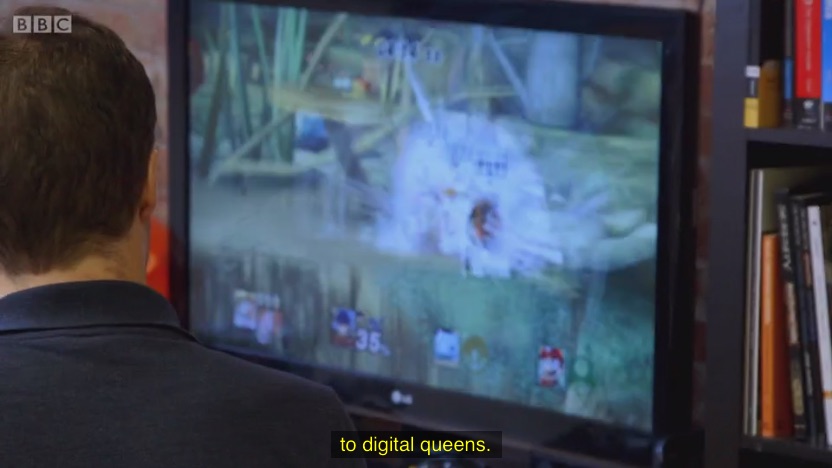
Can our selfie queens go from digital zeroes to start-up heroes?
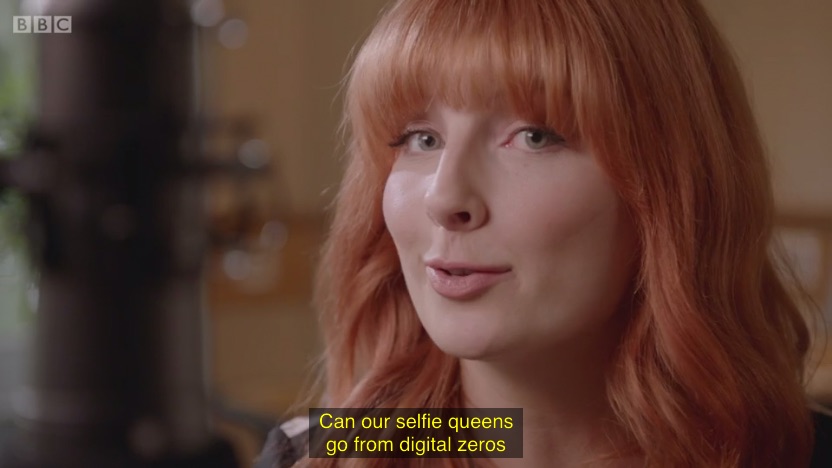
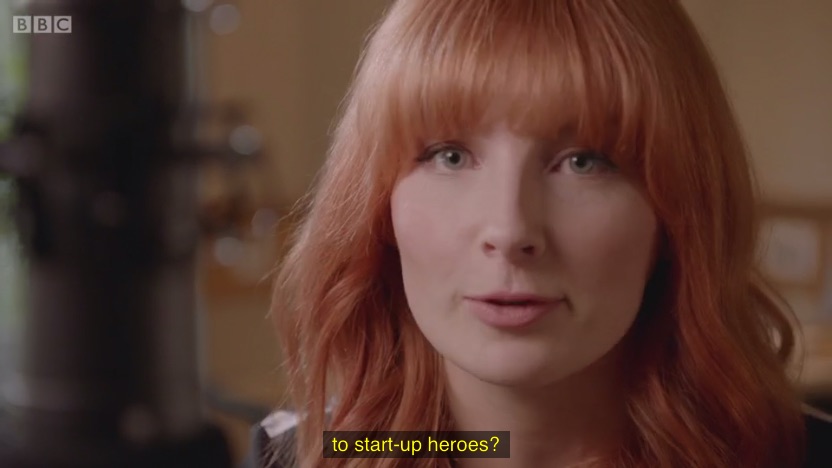
Remember, this was said of women who regularly use Instagram and Snapchat, one who is a gamer, and another who has YouTube channel and blogs.
Referring to these young women as "selfie queens" perpetrates everyday sexism that girls are obsessed with their looks without recognising WHY that might be the case.
The tech applications the five young women are shown reinforce gender stereotypes.
First they are taken to a company that has created an app for digital make-up.
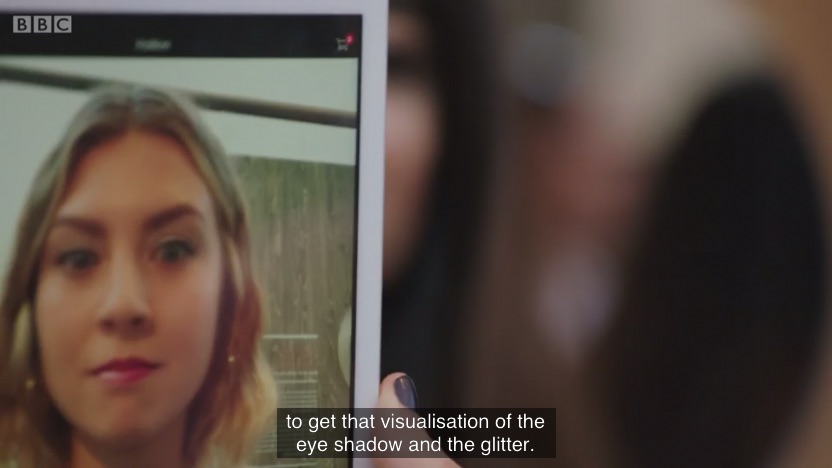
Then they're taken to an agency tasked with bridging the gap between fashion and technology.
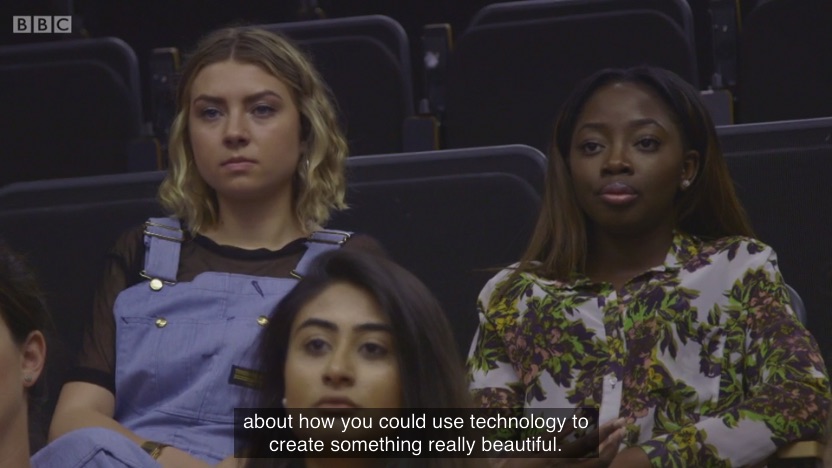
Imagined conversation in the production meeting:
A: "What are girls interested in?"
B: "Shopping, make-up, boys and fashion"
A: "Great, we'll show them apps about make-up and fashion!"
Why reinforce the very stereotype that is keeping them out of tech?
The embarrassing task of Let's Hit The Streets!
After a morning at Shazam to see how data, they meet up later for their challenge: to increase the money-making ability of an oompah band.
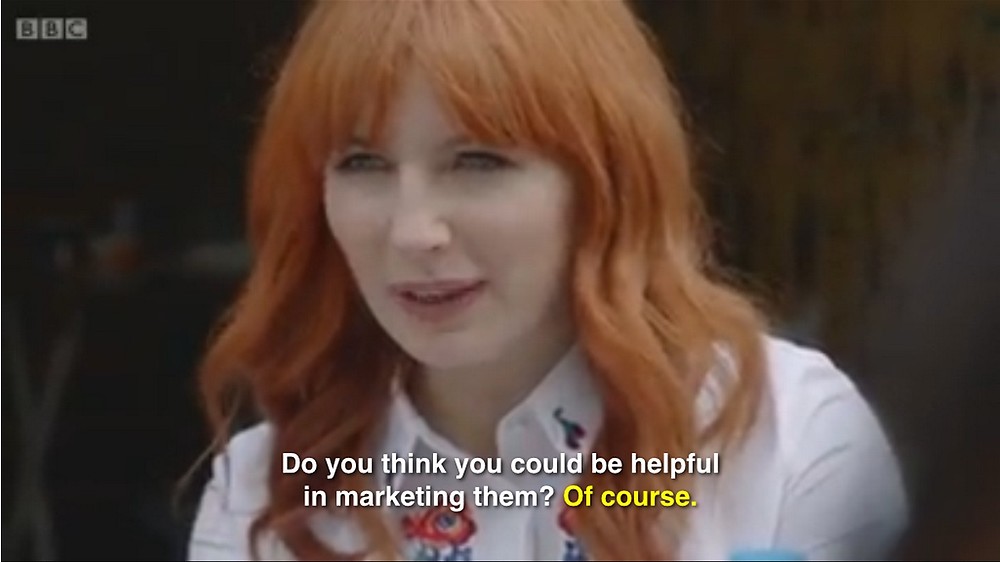
Their misinterpretation of the task wasn't corrected.
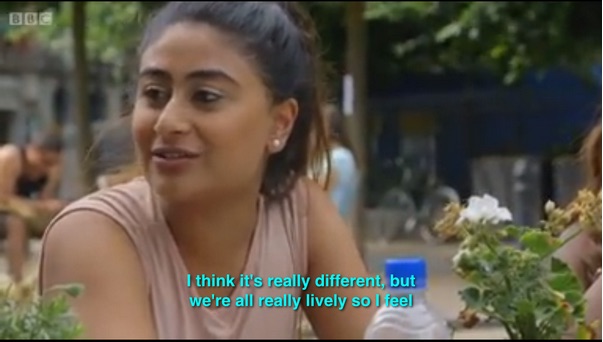
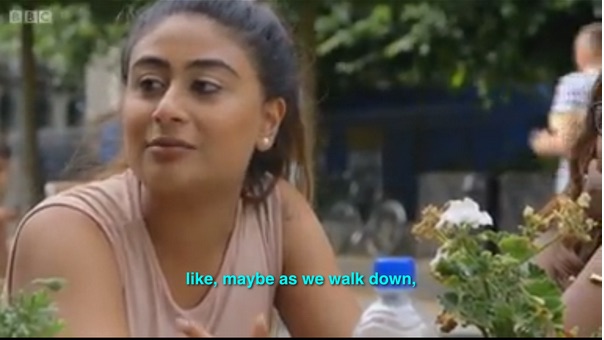
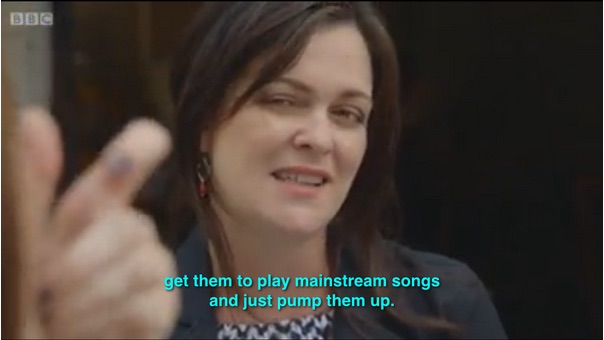
Instead, it was portrayed as a selling task.
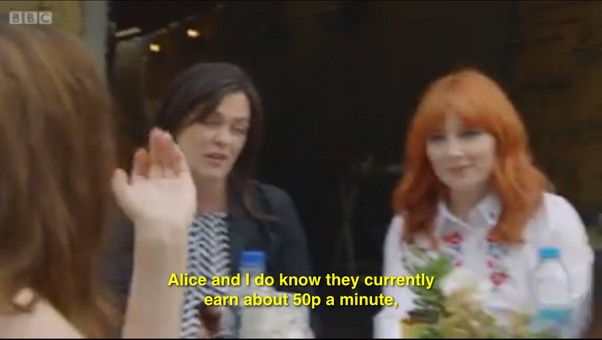
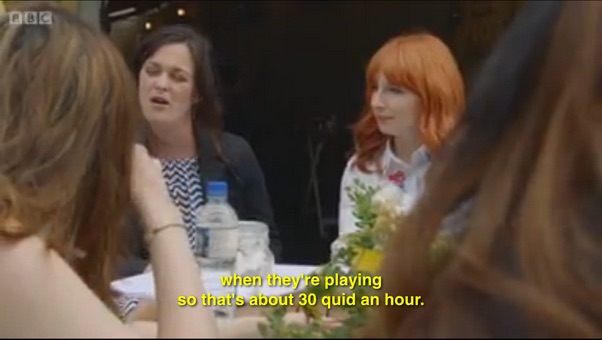

The young women hit the streets, treating the challenge as an Apprentice-style hit-the-streets selling task.
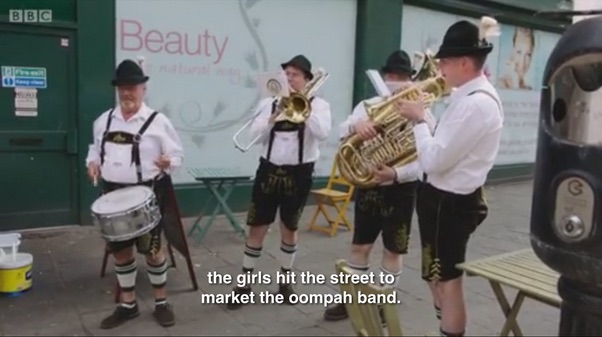
Later, in a post-mortem:
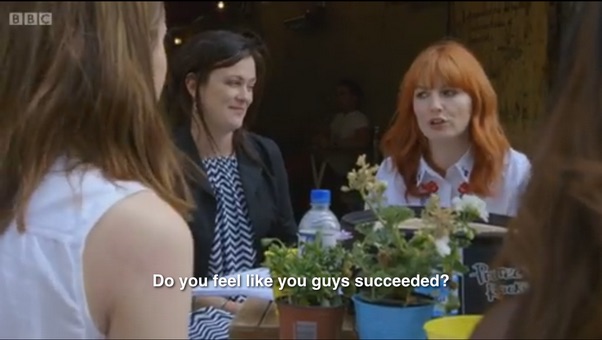
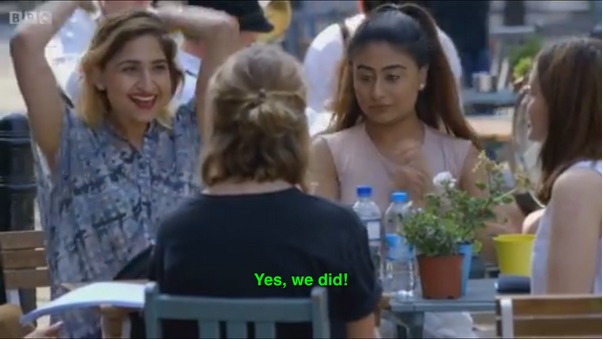
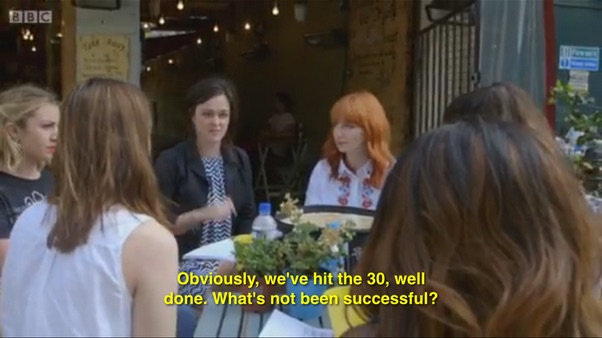
But...
They're told they missed the point, they didn't connect the dots. They hadn't collected or used data. They're asked what they could have done differently. They suggest dancing. Alex touches her head to the table is despair.
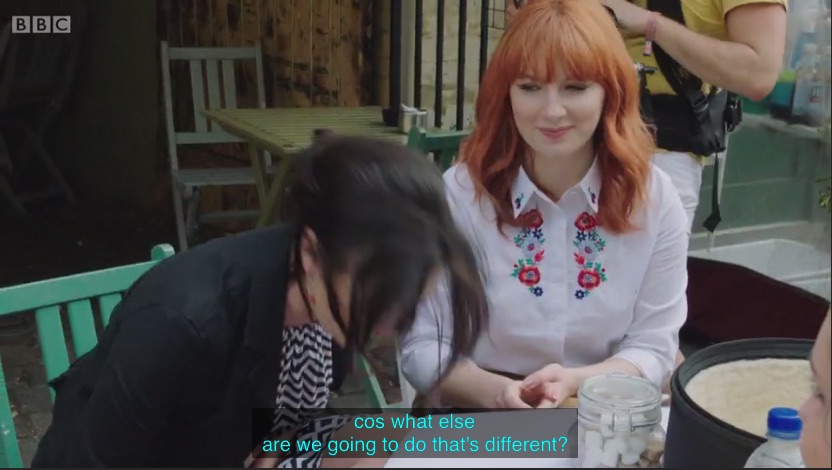
And explains in industry jargon what they did wrong:
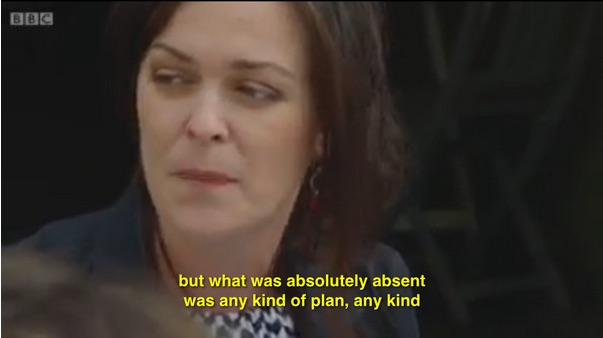
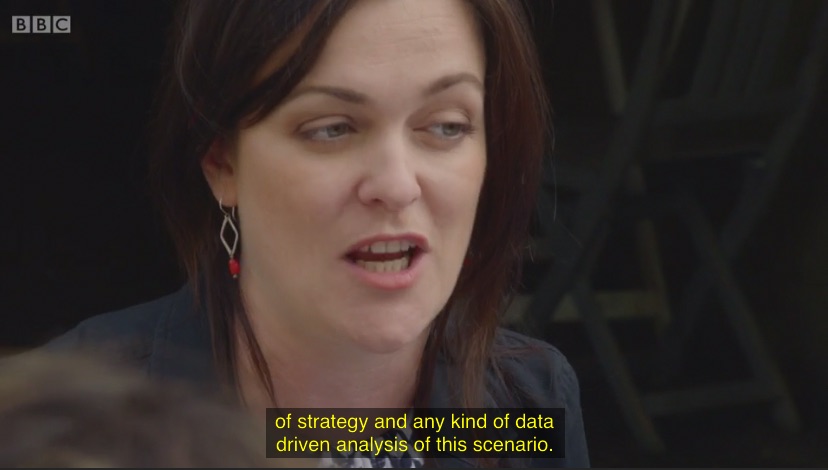
Alex summarises:
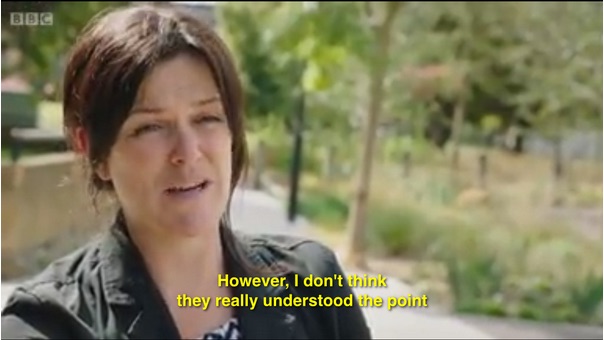
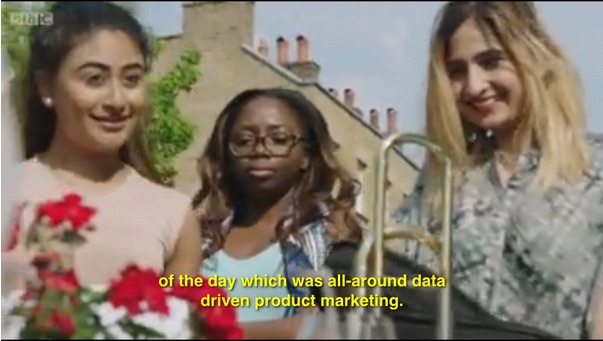
Erm, hang on, isn't this Girls Can Code? Not Girls Can Do All-Round Data-Driven Marketing without any teaching or guidance?
Why was Alice Levine filmed in a kitchen? Women - Kitchens ... hello!
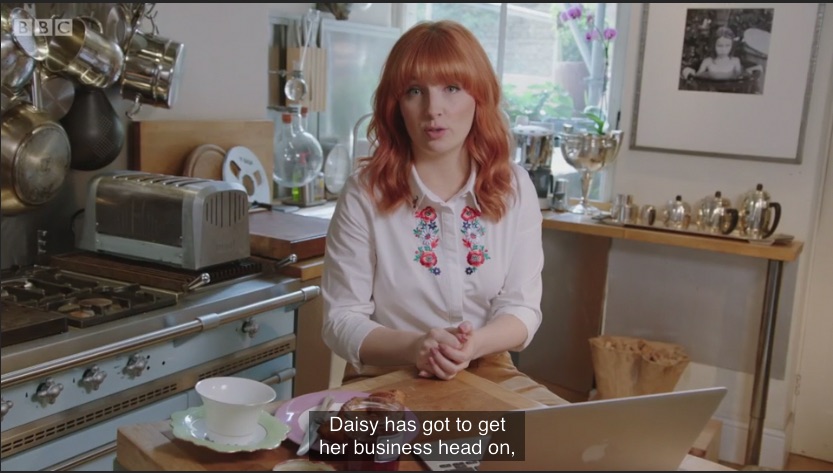
Why was Rooj filmed from the floor to that we could almost see up her dress?
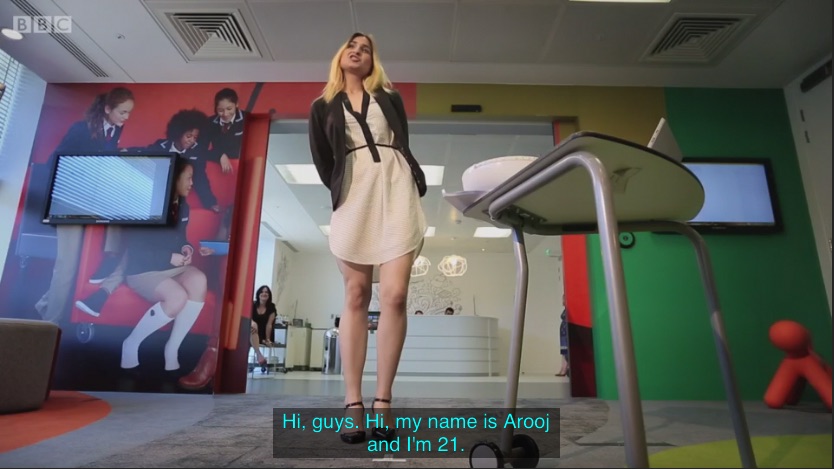
Conclusion
Sexism is like death by a thousand cuts. There's no one big thing to fix. We're all the victims of sexism but we are also the perpetrators.
If we want more girls to go into technology, we have to change the message from the moment they're born.
In the end, I believe that the motivation behind "Girls Can Code". However, I think this series will do more harm than good.
Yes, some girls might have been inspired. But how many were put off?
The series reinforced gender stereotypes and undermined women, whilst asking "hmm, I wonder why there aren't more girls in tech".
To the two male researchers, the male Producer and male Director of "Girls Can Code". Sorry, boys, but you're part of the problem.
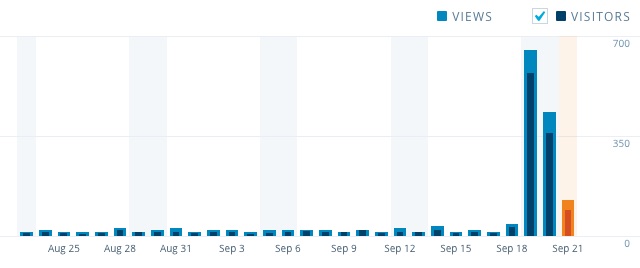
UPDATE: My blog's visitors increased dramatically because of this post
Related posts:
- Reaction: "Girls Can Code” Ep.1 on BBC3
- Review: "Girls Can Code" on BBC3
- "Girls Can Code" on "Points of View"
Leave a reply
Your e-mail address will not be published. Required fields are marked*